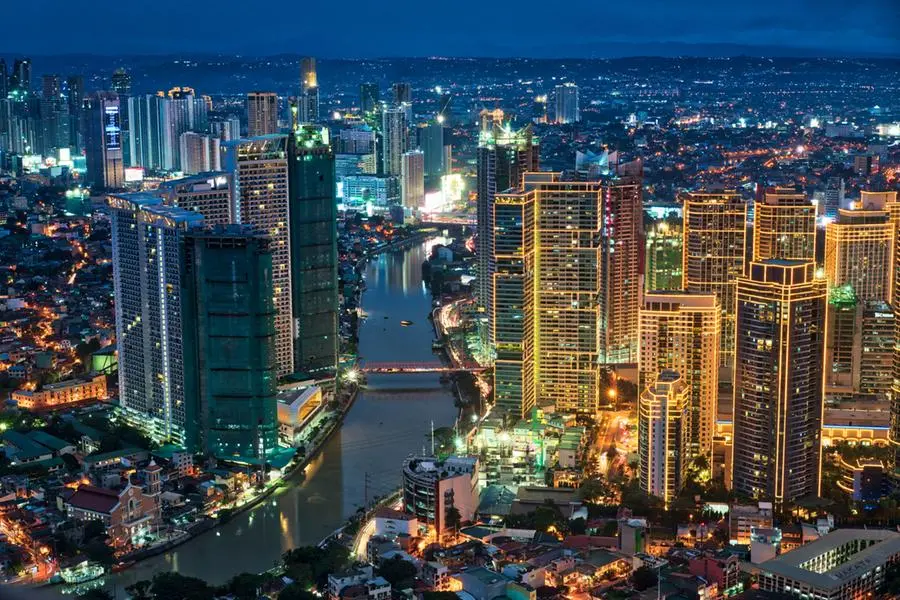PHOTO
As I have repeatedly said on several occasions, the unprecedented interest in the Philippines has grown exponentially, particularly from the Western world, ever since Ferdinand Marcos Jr. became president. The President's interactions with leaders through state and official visits have put the Philippines on the radar screen, consequently giving revitalized interest in the country as a smart investment destination. We also cannot deny the fact that the President's courageous pushback on Chinese aggression in our territorial waters has given him high international leadership status.
I cannot overemphasize that all the trips that have been undertaken by the President are starting to bear fruit. We are seeing tangible results in data coming from the Bangko Sentral ng Pilipinas showing that net foreign direct investment inflows in November 2023 rebounded by 27.8 percent amounting to $1 billion, bringing the 11-month FDI inflows to $7.6 billion.
A report from the Philippine Statistics Authority also disclosed that foreign investment pledges surged 127.2 percent in the fourth quarter of 2023 to P394.45 billion, while 117 projects worth P2.5 trillion between the government and the private sector are now in the pipeline. The unemployment rate also went down to 3.1 percent in December - the lowest level since 2005 - better than the 3.6 percent recorded in November.
Analysts are also optimistic for 2024, among them Fitch Solutions' unit BMI saying it expects the Philippine economy to grow at a faster rate of 6.2 percent this year, higher than the 5.6 percent in 2023. The Bank of the Philippine Islands meanwhile projects the economy to expand by 6.3 percent.
As noted by our economic team, 'the presidential visits have been impactful for the economy, signaling to both local entrepreneurs and foreign investors alike the government's commitment to fostering a conducive environment for economic prosperity. The Philippines has become a premier investment destination for foreign businesses in Asia.'
Sadly, there are still people looking at things from the old Filipino mentality of 'instant gratification' - expecting instant results, refusing to acknowledge that these things don't just come or happen at the click of a finger.
But I can honestly say from where I am sitting, there is absolutely no doubt there is a renewed interest in the Philippines from many American business groups. In fact, the newly reinvigorated US-Philippines Society is arriving with a big delegation to Manila this week, with new members composed of executives from US companies, especially after reorganizing their board of directors.
Founded in 2012, the US-Philippines Society is a private sector initiative that seeks to elevate the profile of the Philippines in the United States. Its members are composed of former diplomats and US government officials, and top businessmen from the US and the Philippines. The group has been reinvigorated with a lot of new members, with Ambassador John Negroponte as co-chairman for the US side.
Formerly the US Ambassador to the Philippines and Permanent Representative to the United Nations, Ambassador Negroponte also served as Deputy Secretary of State and was appointed by president George W. Bush as the first ever Director of National Intelligence.
Businessman Jaime Augusto Zobel de Ayala has taken over as co-chairman for the Philippine side, vice Manny Pangilinan who has opted to be a board member instead since he is busy with many other businesses. During the most recent SGV Knowledge Institute Briefing, Jaime Augusto shared his confidence that the Philippines will be able to 'maintain its position as one of the region's fastest growing economies this year,' sharing his optimism that 'inflation will continue to slow down and catalyze the return of much more robust consumer spending, which has long been the driver of the economy, as well as higher investments from both the public and private sectors.'
Earlier this week, a delegation from the Honolulu City Council, the Filipino Chamber of Commerce of Hawaii and the Hawaii Philippines Business Economic Council paid a courtesy call on President Marcos and expressed interest in exploring opportunities in trade, tourism and agriculture.
But the highlight of all these investments is the big business delegation organized by President Joe Biden himself. They will be arriving mid-March led by Commerce Secretary Gina Raimondo, whom I met with in Washington recently to get a brief on the plans for that extremely important undertaking. Secretary Raimondo will be bringing top CEOs who will be looking at the Philippines for potential investments in many sectors that include innovation economy, connective infrastructure, clean energy transition, critical minerals sector and food security, among others.
A big impediment in attracting foreign investors are the restrictive economic provisions in the Constitution which President Marcos correctly described were 'not written for a globalized world.' According to the Organization for Economic Cooperation and Development's foreign direct investment regulatory restrictiveness index (FDI Index), the Philippines in 2020 ranked as the third most restrictive out of 84 countries, with most of the restrictive laws directly enshrined in the 1987 Constitution.
I know there has been a lot of controversy surrounding the issue of economic Charter change, but this is something that cannot be done overnight either. As I repeatedly said, it must be properly debated on, with the pros and cons thoroughly discussed in a transparent manner because we will be changing laws that are enshrined in the Constitution - so we have to be careful about this. This is something that should not be simply shoved down people's throats.
There's an old saying - 'patience is a virtue' - and clearly, we should have enough sense and patience to know where we all want our country to go: economic prosperity means economic security.
Copyright © 2022 PhilSTAR Daily, Inc Provided by SyndiGate Media Inc. (Syndigate.info).





















